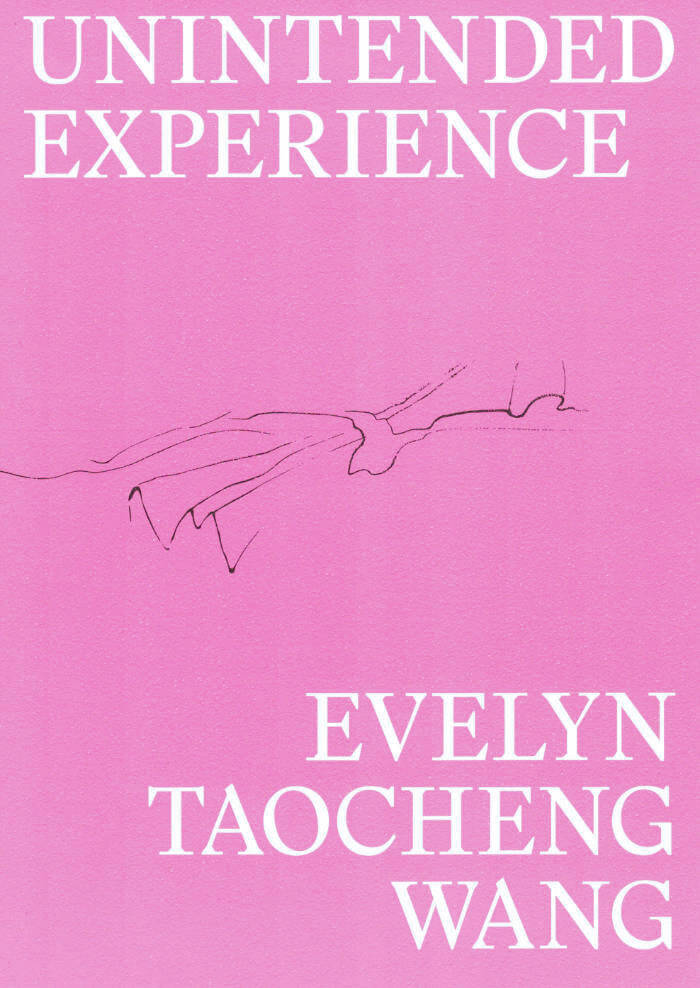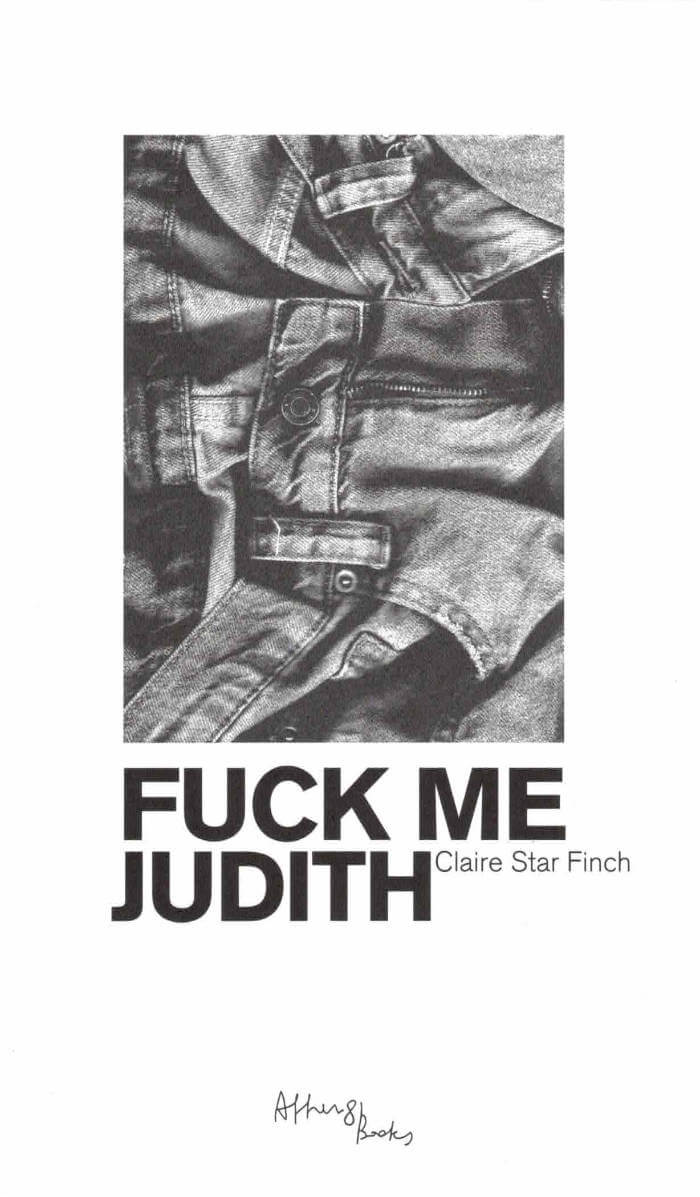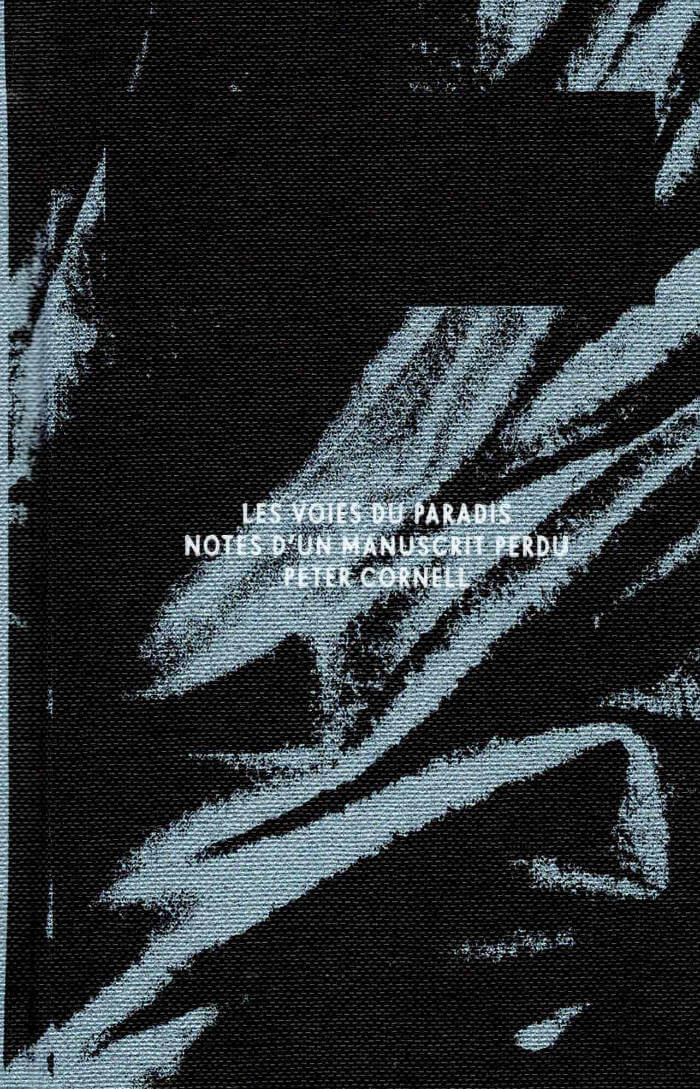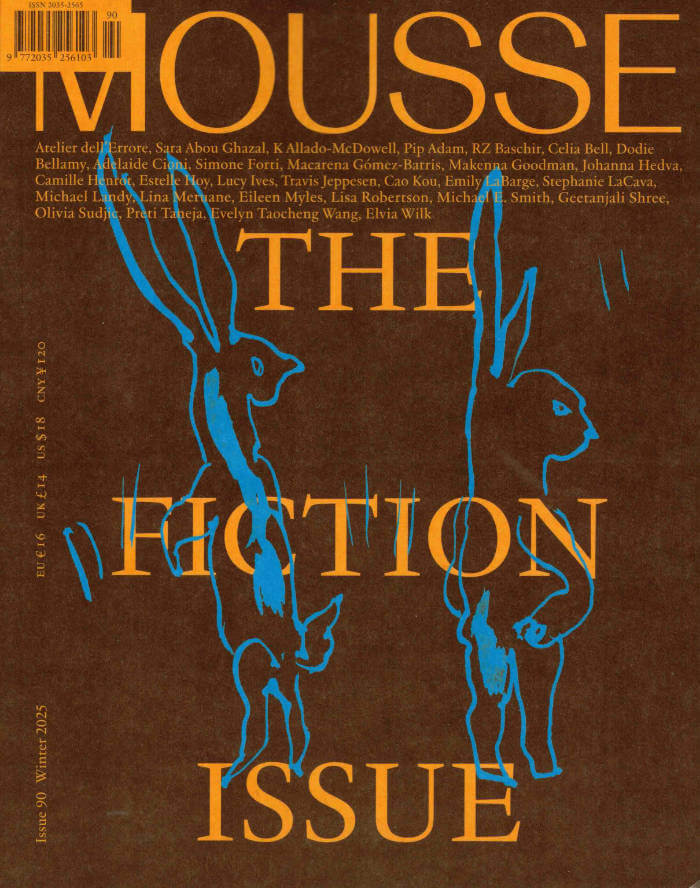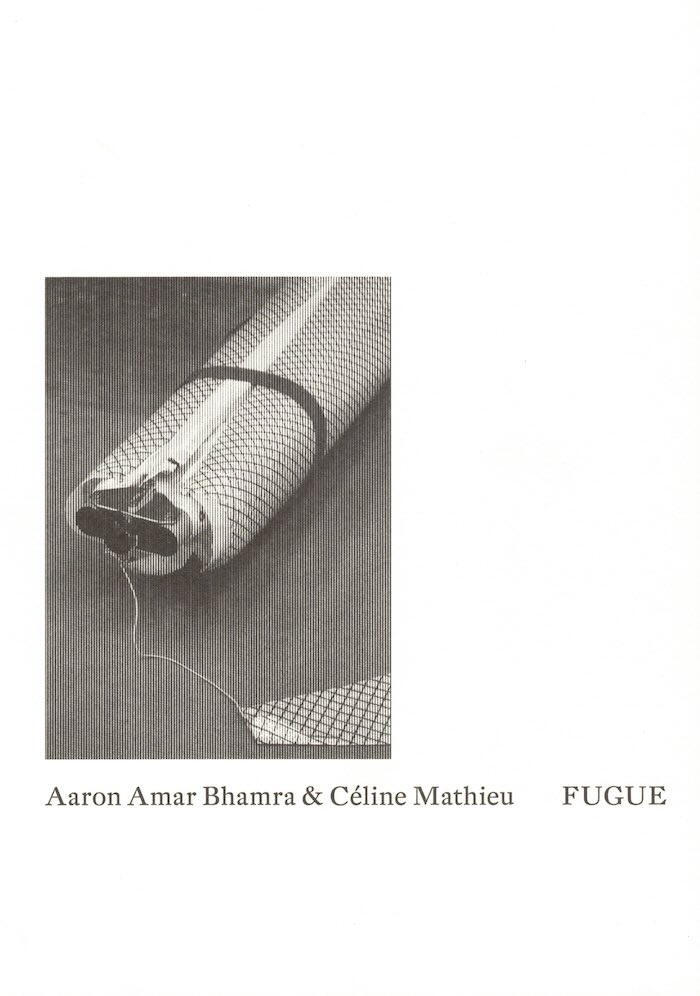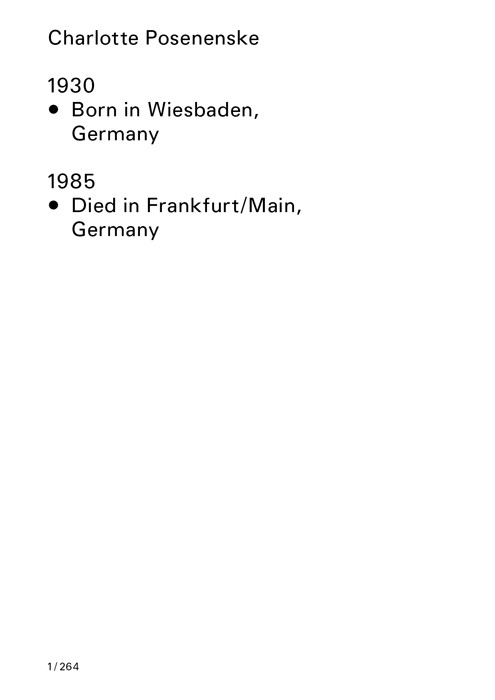Fugue is published on the occasion of the eponymous duo exhibition by artists Aaron Amar Bhamra and Céline Mathieu, presented at Jester in Genk, Belgium. The title, derived from the Latin fuga (flight), evokes both its musical and psychological meanings: a contrapuntal compositional technique and a state of dissociation. These dual connotations—aural and mental—resonate throughout the exhibition and this accompanying publication.
Céline Mathieu's work moves between the sensory and the conceptual, integrating multiple media to explore the circulation of thoughts and materials in relation to specific sites. Aaron Amar Bhamra's practice draws on recurring forms and materials to construct evolving personal and social archives, often reactivating exhibition spaces by engaging with their historical contexts.
In addition to documenting the exhibition, the publication features an introduction by Jester's artistic director Koi Persyn, a visual score of a sound composition by Charlie Usher, written contributions by Céline Mathieu, curator Eloise Sweetman, and researcher Johanna Schindler, as well as a series of analog photographs by Aaron Amar Bhamra.
Contributions by Koi Persyn, Céline Mathieu, Charlie Usher, Eloise Sweetman, Johanna Schindler, Aaron Amar Bhamra.
Austrian artist Aaron Amar Bhamra (born 1992) often procures exhibition spaces that subtly expose their systematics and physical experience by incorporating imprints reminiscent of other spaces or past exhibitions. He occasionally uses recurring forms and materials, weaving a site of shifting personal and social archives.
Céline Mathieu (born 1989) is a Belgian artist and writer. Her practice is often site and condition specific, using sound, scent, sculpture, performance, text and different materials in performative installations. The work is both sensory and conceptual. Her work looks into the circulation of thoughts and materials. Material and economic cycles merge with hyper-personal items, resulting in fluid work that cannot quite be pinned down.
